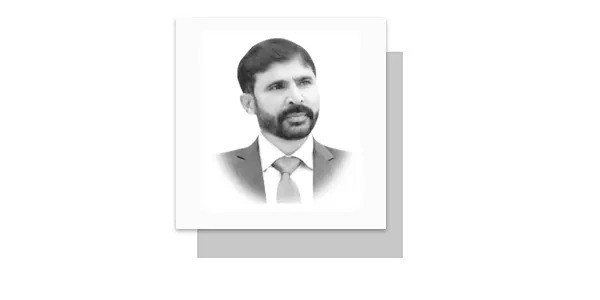NGOZI Okonjo-Iweala, the leader of the World Trade Organization has said that rich countries are being very hypocritical. They used to tell developing countries to open up their economies and not be protectionist, but now the rich countries are not following their own advice. They got rich and powerful by following certain rules, but now they want to change the rules in their favour. Okonjo-Iweala also thinks they no longer want fair competition and prefer a system based on power instead of rules. The US officials often talk about the importance of following international rules. These rules were established after World War II to promote open trade and prevent countries from being too nationalistic and protective. The leaders back then wanted to avoid the problems caused by nationalism and protectionism. They successfully created a peaceful and prosperous world through a system of free trade. This system helped poor countries become rich and strong, making it less tempting for countries to go to war or try to conquer new lands.
The way countries work together involves more than just trading goods. It includes agreements, ways of doing things, and shared ideas about how the world should be fair. The United States has been better at talking about these ideas than actually following them. For example, the war in Iraq went against the principles of the United Nations, which say you shouldn’t attack another country without a good reason. The US also picks and chooses which international rules it follows and criticizes other countries for doing the same. When the US pulled out of a deal with Iran, even though Iran was keeping its promises, it made it harder for the world to work together on important issues. The US also uses its power to control the use of the dollar to force other countries to do what it wants. In the past, the US was seen as a good country because it wasn’t an empire like the United Kingdom or France. It was once a colony itself and didn’t try to take over other countries. But lately, the US is acting more like a bully, and even its friends are looking for ways to deal with it. The US used to help make the world a better place for everyone, not just itself. That used to be its greatest strength. People might like the money and help they get from China, but they think China is mostly interested in making itself powerful. The US, on the other hand, used to show it cared about everyone’s interests, not just its own.
If the United States gives up on its big, open, and generous view of the world because of fear and pessimism, it will lose a lot of its natural advantages. For a long time, the US has justified actions that go against its stated principles as exceptions needed to protect itself and support the overall order. It sometimes breaks the rules to get quick results, but you can’t save a system by destroying its rules. Other countries are already watching and learning from this. They are in a race to protect their own economies by giving special benefits and creating barriers. Some countries break international rules and point to the US’s hypocrisy as an excuse. This behaviour even extends to the former president not respecting democratic norms.The biggest threat to the international order with rules doesn’t come from China, Russia, or Iran. It comes from the United States. If the US, driven by exaggerated fears of decline, steps back from its leading role in world affairs, it will leave empty spaces of power worldwide. This will encourage various powers and players to try to take advantage of the chaos. We’ve seen what happens in the Middle East without strong American involvement. Imagine something similar in Europe and Asia, but with major powers causing disruption and significant global consequences.
It’s concerning to see parts of the Republican Party returning to isolationism, similar to the 1930s when it opposed US intervention even as Europe and Asia faced crises. Since 1945, the US has debated how to engage with the world but not whether it should be engaged at all. If the US truly turns inward, it would be a setback for order and progress. However, the US still has the ability to lead, build alliances, solve global problems, and prevent aggression with fewer resources than during the Cold War. The cost would be much higher if the order collapsed, rogue powers rose, and the open global economy fractured. The United States has played a crucial role in creating a new kind of international relations since 1945, benefiting most countries, including itself. While facing new challenges, many powerful countries also gain from peace, prosperity, and a world of rules and norms. Those challenging the current system don’t have an alternative vision that could unite the world; they just want narrow advantages for themselves. Despite its internal issues, the United States is uniquely capable and positioned to maintain the central role in sustaining this international system. As long as America stays committed to its project, the current international order can thrive for many years.
—The writer, a PhD scholar, is associated with Islamia University Bahawalpur.
Email: [email protected]
views expressed are writer’s own.










